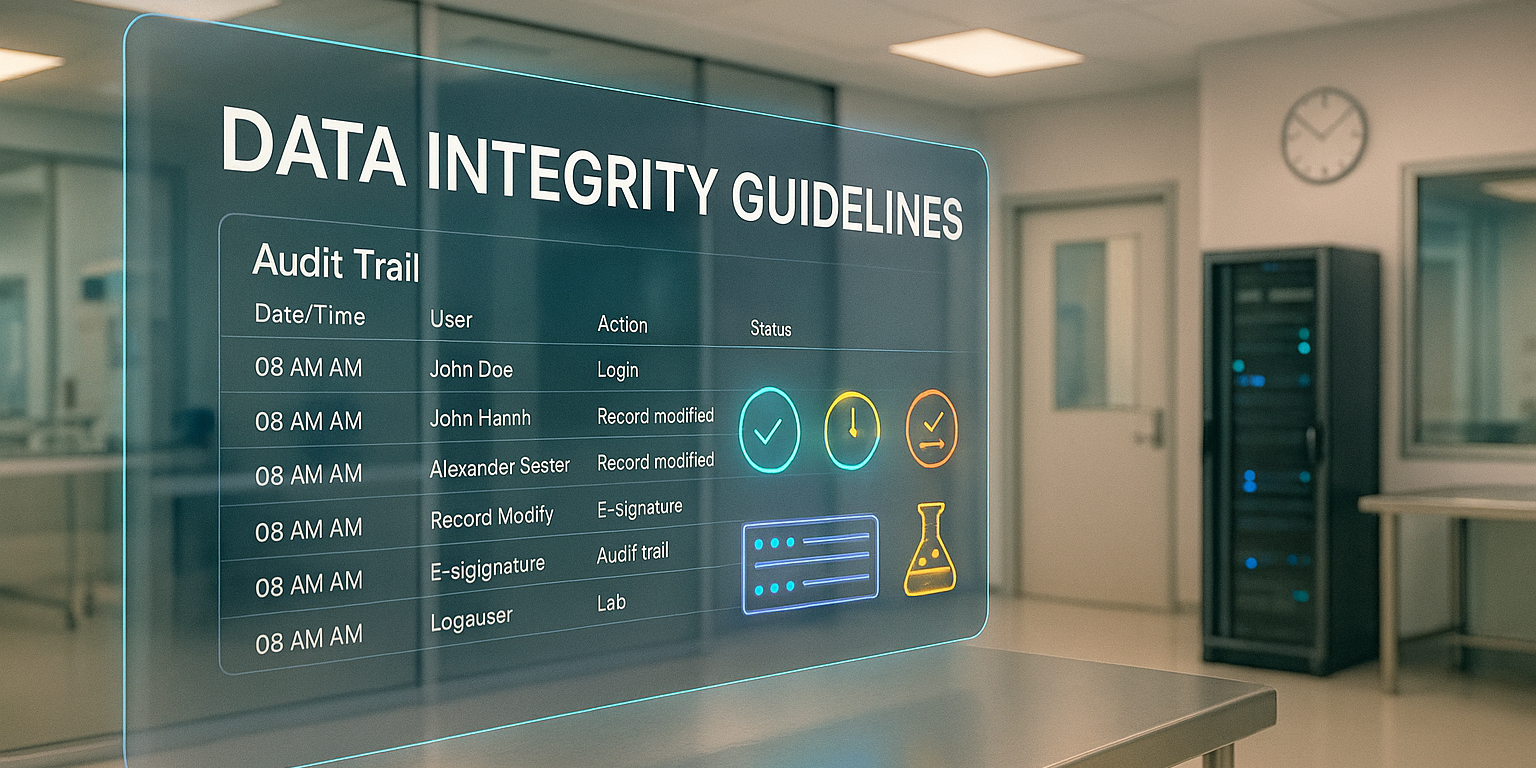Effective time management is critical in the pharmaceutical industry. Managing time well ensures projects stay on track, meet deadlines, and maintain regulatory compliance. Pharma projects often involve complex processes, numerous stakeholders, and strict timelines. Without proper time management, teams risk delays, reduced productivity, and compromised quality.
This article explores time management tips and strategies specifically tailored for pharmaceutical projects. By applying these techniques, you can streamline workflows, enhance collaboration, and deliver outstanding results.

The Role of Time Management in Pharmaceutical Projects
Time management drives success in pharmaceutical projects by ensuring teams work efficiently and stay focused. It enables you to allocate resources wisely, avoiding unnecessary delays or wasted effort.
In pharma, the dynamic nature of work requires precise coordination among research, manufacturing, and quality control teams. Each department depends on the other to meet strict timelines and deliver accurate results. By planning ahead and using effective tools, you can keep everyone aligned and focused on common goals. Regular check-ins and progress reviews further ensure that no one deviates from the project’s objectives.
Pharma professionals face unique challenges, including rigorous regulatory reviews and intricate testing protocols. Strong time management skills allow you to anticipate potential roadblocks and develop strategies to address them quickly. With structured schedules and clear priorities, you can reduce the impact of disruptions and maintain steady progress. Effective time management not only minimizes stress but also boosts overall productivity. When your team consistently meets deadlines and delivers quality outcomes, you build trust and foster a culture of success. Over time, this foundation helps your organization achieve sustainable growth while staying competitive in the industry.
Sign up for Project Management Fundamentals Course
Essential Time Management Techniques for Pharma Projects
Divide large projects into smaller, manageable phases. Breaking tasks reduces complexity and builds momentum.
Focus on high-impact activities first. Prioritization keeps you aligned with project goals.
Monitor task progress with apps or software. Time-tracking ensures accountability.
Allocate sufficient time for each phase. Early planning reduces last-minute stress.
Discuss progress and address challenges as a team. Regular communication avoids bottlenecks.
Fast-track your career with VIP consultation
Effective Strategies for Planning and Execution
How Planning Enhances Time Management
Planning enhances time management by helping teams handle the complexities of pharmaceutical projects. A detailed plan clearly outlines objectives, timelines, and required resources for every phase.
By creating robust plans, you reduce risks and keep everyone aligned with shared goals. You can identify high-priority tasks early, ensuring the team focuses on what matters most. Transitioning smoothly between project phases becomes easier when you allocate time for each task effectively. With proper planning, you avoid confusion, delays, and unnecessary rework.
Using project management tools, like Gantt charts, further improves planning and keeps your team organized. These tools help you visualize timelines and track progress at every stage. They also ensure all team members stay informed and on the same page. Planning involves identifying potential obstacles early and developing contingency measures to address them.
Proactive planning ensures you handle unexpected issues without derailing the project. Consistent planning practices lead to smoother workflows, better collaboration, and successful project execution.


Making Execution Seamless with Scheduling
Scheduling creates a framework that translates complex plans into manageable, actionable steps for every team member. By assigning specific time frames to tasks, you establish clear expectations and streamline the workflow. This clarity ensures every team member knows their priorities and focuses on meeting deadlines. Use digital calendars and scheduling tools to synchronize timelines across departments, fostering collaboration and reducing misunderstandings. When everyone operates on the same schedule, you minimize gaps and improve overall coordination. Regularly revisiting and refining schedules further enhances adaptability, helping you stay on track despite unforeseen changes.
Effective scheduling also considers resource availability, ensuring no team member feels overwhelmed. Balancing workloads evenly improves morale and productivity while reducing the risk of errors. Include buffer time for high-priority tasks to accommodate potential challenges without disrupting overall timelines. Review schedules frequently to identify and address inefficiencies, keeping the project on course. Proper scheduling keeps the team aligned, ensures accountability, and supports the timely achievement of goals. Ultimately, well-executed scheduling drives seamless execution, allowing teams to focus on delivering quality outcomes efficiently and without unnecessary stress.
Time Management Tools for Pharma Professionals
Gantt Charts
Map project timelines and dependencies. These charts provide clarity and structure.
Kanban Boards
Track task progress visually. Kanban boards improve task organization.
Time-Tracking Software
Measure time spent on tasks. Use data insights to optimize productivity.
Collaboration Platforms
Share updates and communicate in real-time. Platforms like Slack enhance teamwork.
Automated Alerts
Receive reminders for deadlines. Automated systems prevent missed milestones.
Building Collaborative Teams for Better Time Management
Communication as a Cornerstone
Clear communication serves as the cornerstone of effective time management in pharmaceutical projects. Direct channels like team chats or emails ensure everyone understands their roles and responsibilities. When you communicate clearly, you reduce misunderstandings and promote stronger collaboration. Hold regular check-ins to discuss progress, address issues, and realign priorities. These meetings keep the entire team informed and ensure everyone works toward shared goals. Transitioning between tasks becomes smoother when you maintain open and transparent communication. Strong communication fosters trust, accountability, and efficiency within the team.
Technology plays a vital role in enhancing communication and streamlining workflows. Platforms like Microsoft Teams or Slack help you organize conversations and make them easily accessible. These tools ensure team members can share updates, clarify instructions, and provide feedback in real time. Staying connected allows teams to adapt quickly to changes, minimizing disruptions and keeping the project on schedule. Use shared calendars and task management tools to further align communication with project timelines.

Delegation and Accountability
Delegation ensures responsibilities are distributed fairly, allowing teams to work more efficiently and effectively. Assign tasks to individuals who possess the right skills and expertise for specific jobs.
This targeted approach helps team members focus on their strengths and deliver quality results. When everyone understands their role, they avoid unnecessary overlaps and maintain a streamlined workflow. Use clear instructions and deadlines to keep tasks aligned with project goals. Regularly reviewing assignments ensures all responsibilities are covered, reducing the risk of delays or errors.
Accountability strengthens time management by ensuring tasks are completed on time and to high standards.
Set clear expectations for every team member, so they understand what success looks like. Monitor progress consistently to identify and address any challenges early. Use constructive feedback to guide improvements and keep the project on track. Recognize team members’ achievements to boost morale and reinforce their commitment to excellence.
By combining effective delegation with strong accountability, you create a productive and motivated team that consistently meets deadlines and delivers outstanding results.
Tips for Overcoming Pharma Time Management Obstacles
Anticipating and preventing delays ensures projects stay on track and meet deadlines effectively. Identify potential risks early during the planning phase to minimize surprises. Create a risk assessment checklist to prioritize critical tasks and allocate buffer time. This preparation reduces downtime and allows your team to maintain steady progress. Develop contingency plans for common issues like resource shortages or regulatory delays. When your team anticipates challenges, they can respond swiftly and minimize disruptions. Regularly reviewing project progress helps identify new risks and refine strategies for avoiding delays.
Streamlining daily operations further prevents delays by improving workflow efficiency. Eliminate unnecessary steps through thorough process reviews to identify bottlenecks and redundancies. Simplified workflows save time and enable team members to focus on high-priority tasks. Introduce automation for repetitive activities like data entry or report generation to reduce manual effort and improve accuracy. Automation frees up resources for more strategic tasks, accelerating overall project progress. By anticipating risks and optimizing daily operations, your team works smarter and achieves project goals without unnecessary stress.
Overcoming Time Management Challenges in Pharma
Tight Deadlines
Tight schedules strain resources. Plan buffer times to manage unexpected delays.
Complex Regulations
Regulatory processes slow progress. Factor in extra time for compliance checks.
Resource Limitations
Limited resources create bottlenecks. Optimize allocation during the planning phase.
Scope Creep
Expanding project scope disrupts timelines. Define the scope early and stick to it.
Unproductive Meetings
Long meetings waste time. Keep discussions concise and action-oriented.
Conclusion
Time management is essential for achieving success in pharmaceutical projects. By implementing these strategies, you can streamline workflows, overcome challenges, and meet your deadlines with confidence. Use tools, prioritize planning, and foster collaboration to optimize your team’s performance. When you manage time effectively, you ensure not only project success but also long-term growth in the competitive pharmaceutical industry.
References

Ershad Moradi
Ershad Moradi, a Content Marketing Specialist at Zamann Pharma Support, brings 6 years of experience in the pharmaceutical industry. Specializing in pharmaceutical and medical technologies, Ershad is currently focused on expanding his knowledge in marketing and improving communication in the field. Outside of work, Ershad enjoys reading and attending industry related networks to stay up-to-date on the latest advancements. With a passion for continuous learning and growth, Ershad is always looking for new opportunities to enhance his skills and contribute to pharmaceutical industry. Connect with Ershad on Facebook for more information.

Data Integrity Guidelines: What You Must Do Now
Build trust with data integrity guidelines that translate ALCOA+ into daily controls. Secure systems, validate suppliers, enable audit trails, and prepare for Annex 11 updates. Boost compliance, speed releases, and protect patients. Start now—read the full guide and download the one-page checklist today.

Build a GMP eLearning Program That Cuts Audit Risk
Design GMP eLearning that truly lowers audit risk. Map modules to SOPs, reinforce ALCOA+, and train decisions with job-real scenarios. Then launch fast, validate with QA signals, and iterate by risk. This guide shows how GMP compliance training builds measurable habits, cleaner records, and calmer inspections. Read now and copy the framework.

Independent Pharmacy Decoded: Powerful Benefits You’ll Love
Learn how independent pharmacy teams master DSCSA, EPCIS, billing codes, and patient services to grow margins and trust. Explore checklists, comparisons, and quick wins for CLIA-waived testing, MTM, and pricing strategy. Start today—read the guide and book a VIP consultation for faster results.





